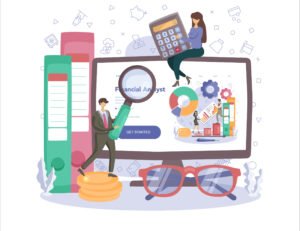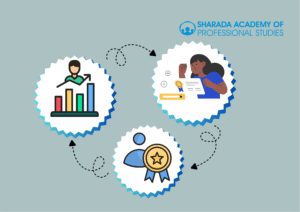Introduction
In today’s digital-driven workplaces, Microsoft Excel continues to hold a powerful place as one of the most widely used tools for data management and analysis. From small businesses to multinational corporations, Excel plays a crucial role in streamlining operations and supporting decision-making. However, while many professionals know the basics, employers increasingly seek candidates with advanced Excel skills to handle complex data tasks, automate processes, and deliver accurate insights. Proficiency in Excel not only enhances productivity but also signals career readiness and adaptability to employers. In fact, advanced Excel knowledge is now considered a valuable career asset across industries. This blog explores why learning advanced Excel can significantly improve your job opportunities, the key skills you should focus on, the career paths it can open, and how enrolling in Advanced Excel Courses can give you the competitive edge you need.
Why Advanced Excel Skills Are Essential in Today’s Job Market
Explain the relevance of Excel in modern business operations and why employers value advanced Excel skills.
High Demand Across Industries
Excel is no longer just an accounting tool—it has become indispensable across finance, marketing, HR, operations, and data analysis. Whether it’s preparing reports, analyzing trends, or managing employee data, employers look for candidates who can efficiently use Excel’s advanced features. Gaining practical Excel expertise is a smart career move and can often be the deciding factor between two equally qualified candidates.
Enhances Productivity and Efficiency
Professionals equipped with advanced skills such as pivot tables, formulas, and macros can complete tasks in a fraction of the time. Automating repetitive processes not only improves efficiency but also reduces human error. This ability to deliver accurate results quickly makes advanced Excel users valuable assets to any organization.
Key Advanced Excel Skills That Boost Employability
Introduce the most important advanced Excel skills that can make a candidate stand out in the job market.
Data Analysis and Visualization
One of Excel’s strongest advantages lies in its ability to transform raw data into meaningful insights. Tools like pivot tables, charts, and conditional formatting help professionals create visual reports that make decision-making easier for managers and stakeholders.
Advanced Formulas and Functions
Functions such as VLOOKUP, HLOOKUP, INDEX-MATCH, IF, and SUMIFS are crucial in financial modeling, business analysis, and reporting. These formulas allow professionals to handle large datasets, perform scenario analysis, and solve complex business problems.
Automation with Macros and VBA
Repetitive tasks—such as preparing monthly reports or generating invoices—can be automated using Macros and VBA (Visual Basic for Applications). This not only saves time but also streamlines workflow, giving professionals more time to focus on strategic tasks.
Career Opportunities With Advanced Excel Skills
Explain how learning Excel can open various career paths and improve growth prospects.
Finance and Accounting Roles
Accountants, financial analysts, and audit associates rely heavily on Excel for budgeting, forecasting, auditing, and reporting. Advanced formulas and financial modeling skills directly improve performance in these roles.
Data Analysis and Business Intelligence
Business analysts, data analysts, and BI specialists often start with Excel before moving to tools like Power BI or SQL. Excel provides a strong foundation for data-driven roles, making it a stepping stone into analytics careers.
Administrative and Operational Roles
Office managers, HR executives, and operations coordinators frequently use Excel to manage employee data, create schedules, and track performance. Proficiency in Excel improves their ability to organize and present information efficiently.

How an Advanced Excel Course Helps You Gain These Skills
Explain the benefits of taking a structured Excel course and how it translates to real-world skills.
Hands-On Learning
A well-structured Excel course allows learners to practice with real-world datasets and solve problems that mirror workplace challenges. This practical approach ensures that skills learned can be applied immediately in jobs.
Certification Adds Credibility
Adding an Advanced Excel certification to your resume demonstrates your expertise to potential employers. It increases your chances of landing interviews and boosts confidence during career transitions or promotions.
Access to Expert Guidance
Courses provide access to trainers who share shortcuts, best practices, and problem-solving methods. Mentorship and doubt-clearing sessions help learners overcome obstacles faster than self-study.
Conclusion
Advanced Excel skills have become a must-have for professionals aiming to grow in today’s competitive job market. From improving productivity to unlocking new job opportunities and career growth, Excel proficiency is a clear career booster. By enrolling in a professional Advanced Excel course, you not only gain hands-on experience but also earn certification that adds credibility to your profile. If you want to stand out and secure better job opportunities, now is the time to take the next step and master Excel.
FAQs
Is Excel still relevant in 2025?
Yes. Despite the rise of new tools, Excel remains essential in business operations. It is integrated with platforms like Power BI, Google Sheets, and ERP systems, ensuring its continued relevance.
How long does it take to become proficient in advanced Excel?
Most Advanced Excel courses range from 4 to 8 weeks, depending on the intensity of learning and practice. Consistent practice is key to mastery.
Can Excel skills help me switch careers?
Absolutely. Excel is a transferable skill across industries—whether you’re moving from administration to finance, or from HR to analytics, Excel supports career shifts.
Do I need prior knowledge before learning advanced Excel?
Basic understanding of Excel functions is helpful, but not mandatory. Many courses start with a quick refresher before moving to advanced topics.






